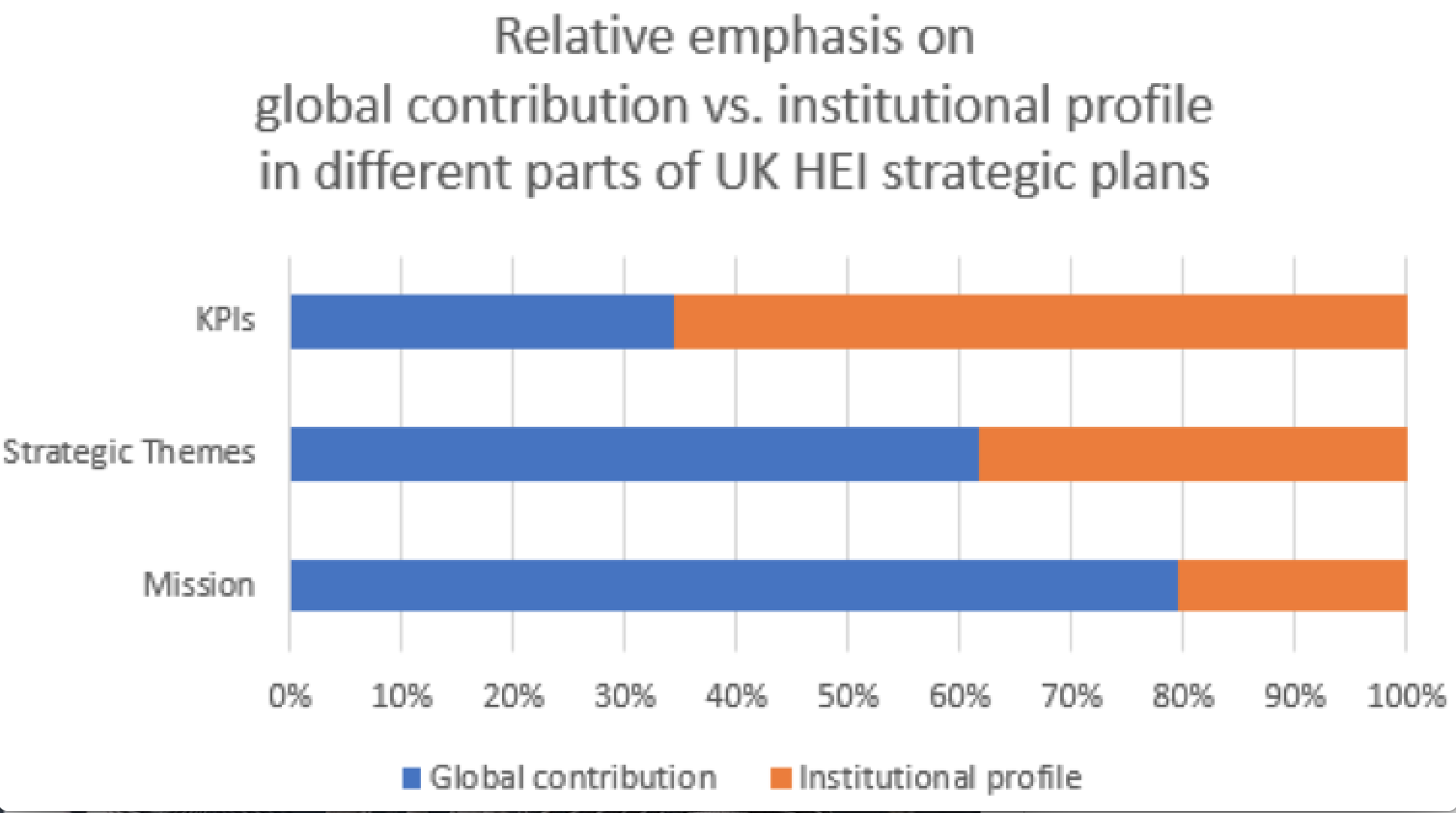Rethinking university strategies for global engagement: insights from the UK
In the UK, as elsewhere, 2020 was a year of fire-fighting and crisis management in the higher education sector. As we slowly regain the bandwidth to consider future plans, what role will global engagement play in post-pandemic strategies? How will this build on what went before? And what will need to be different as institutions seek to find their place within a much-altered global higher education landscape?
These are questions which Vicky Lewis Consulting tried to address through research conducted in late 2020 and early 2021, which has now been published in the form of a report for the HE sector: UK Universities Global Engagement Strategies: time for a rethink?
Internationalisation prominent in current strategies
The first phase of the research involved reviewing the global dimension in 134 UK higher education institution strategic plans to gain a sector-wide overview of how prominent it is and which aspects are prioritised.
Some 60% of the strategic plans include a specific ‘international’ theme, with a further 16% fully embedding a global ethos into the content of the plan (without it being an explicit theme). As a result, internationalisation is a prominent feature of more than three-quarters of UK HEI strategic plans.
Metrics narrower than rhetoric
Comparing older and newer strategies, it is clear that the recent ones are more values-led. At the level of rhetoric, many embrace the idea of making a positive global contribution on a number of levels. However, in those strategies where international key performance indicators are included, these tend to be more focused on building institutional profile, reach and income.
Source: Vicky Lewis Consulting analysis, January 2021
This may suggest a mismatch between what institutions say is important and what is actually measured. Does this reflect a predominantly commercial world view? A lack of imagination when it comes to tracking progress in global engagement? Or simply the challenge of wanting to make a valuable social contribution within a competitive context where institution-building is better rewarded?
Looking to the future
The second phase of the research concentrated on what post-pandemic strategies may look like. It draws on in-depth interviews with 12 senior sector stakeholders (with an interest in institutional strategies for global engagement), supplemented by insights from the plethora of webinars, virtual conferences and publications on this topic that have bubbled up since the pandemic started.
As we explored the question of what future strategies may need to consider, certain themes emerged.
At a philosophical level, HEIs need to consider how their approach to global engagement will reflect institutional values and mission. How will the strategy negotiate government policies (which may not always align with institutional priorities) and include the perspectives of those who challenge western and anglo-centric notions of internationalisation?
Two other ‘big picture’ themes are the need to address both global and local challenges and to negotiate new global dynamics. Institutions need to consider the implications of sustainable development, the climate emergency, equality, inclusion and social justice for global engagement priorities. They also need to address the shift in the centre of gravity from West to East – and the requirement for staff at UK universities to learn more about the priorities and cultures of their partner countries.
Emerging priorities
At a more tactical level, the themes relate to rethinking partnership models and building a culture of ‘Internationalisation for All’ (in a digital world). A move to holistic and mutually beneficial partnerships and networks, and to truly flexible transnational education provision is envisaged. Different kinds of relationships with private sector partners (e.g. edtech companies, agent aggregators and Online Program Management providers) need to be investigated.
At the same time, Internationalisation for All is seen as a priority: the need to embrace inclusive approaches to developing global perspectives (among all students and staff) and enriching the student experience, often via digital technologies. Virtual exchange, virtual internships and collaborative online projects are all expected to come to the fore. Curricula will need to be redesigned to embed these opportunities and to reflect student interest in sustainability, social justice, internationalism and employability.
Changes in working practice are expected, with strategies (and their implementation) needing to be more agile and staff needing to escape their silos, share responsibility for global engagement and work collaboratively on projects. Active changes in behaviour to address travel-related carbon emissions and other key institutional goals are also envisaged.
Finally, picking up on the findings of the first phase of the research, universities are urged to consider new, more imaginative ways of measuring international success; to explore how their chosen metrics can be less about ‘keeping up with the Joneses’ and more about differentiation and making a distinctive impact.
About the author:
Dr Vicky Lewis is founder and director of Vicky Lewis Consulting and specialises in working with Higher Education providers (in the UK and beyond) to develop or refine their international strategies, infrastructure and implementation plans.

Leave a Reply